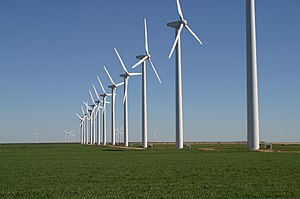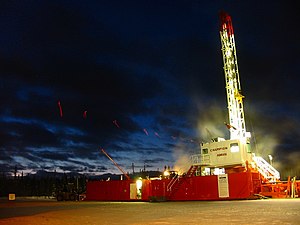Oil and gas are dirty; wind and sun are clean. It seems almost logical and undeniable. The thought of a breeze dancing through the air on a sunny day, providing energy to homes is almost idyllic, while drilling into the dark cold earth for oil and gas is grimy and horrid. The reality, however, is that the comparisons don’t match up, they are misleading. The processes to harness both renewable energy and fossil fuel energy are essentially the same. It starts with an end-user, you, and the products and technologies to supply that demand. Whether it is drilling or manufacturing, nothing is clean. Everything comes at a price and sometimes those prices are the products of unintended consequences.
These consequences are a part of every industry and are the nature of innovation and advancement. From gas in shale plays across the United States to the Athabasca Oil Sands of Canada, down to the solar installations of the south and back up to the wind farms in the north, America and Canada are racing to harness energy.
There are two camps that sit at the crossroads of energy independence and energy sustainability, both entrenched in a one-sided conversation. In an attempt to curb the conversations and couch them in truth, documentary film maker Matt Palmer will challenge viewers on the difficult issue of “how do we deal with the externalities that result from our current global fossil fuel dominated energy system and transition to a low carbon society given that every aspect of our lives from modern science, medicine, technology and food production all rely on fossil fuels,” in his film Unintended Consequences.
While alternative energy resources and renewable technology is still being developed, it is important to understand the facts behind their foundation. Environmentalists tout the benefits of alternative energy as if it is a clean, free and benevolent source of energy without laying out other important factors to the production of solar, wind, hydro and biofuels. "We need to see how these energy issues fit together," said Palmer.
Sure past societies have existed on wind and watermills but they have advanced and excelled with the use of fossil fuels. They are what shaped our present but they don’t have to solely define our future. Both forms of energy have given sustenance and it is each persons choice how it will sustain them in the future. But according to Matt Palmer, they must be educated on both sides, "There is a true lack of understanding on where our energy comes from. I am going to help tell the story."
Palmer’s documentary will follows six families whose lives are exponentially different, and as he states, “to see how energy impacts their lives and the complexity of emotions that result from their access.”
To learn more about Matt Palmer’s upcoming documentary, Unintended Consequences click on the video below or visit http://www.indiegogo.com/Unintended-Consequences and get involved.


